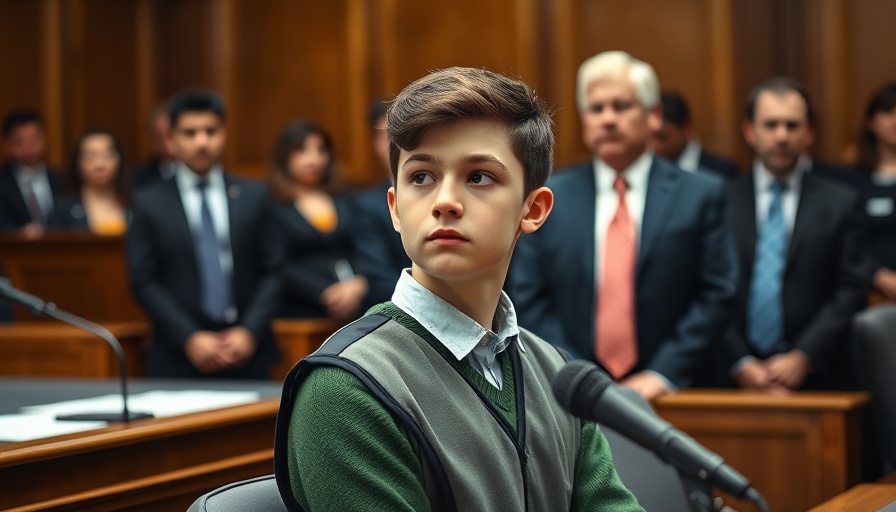
Understanding the High Stakes in the Mangione Case
The recent request by Luigi Mangione's defense team to block the death penalty in the high-profile murder case of UnitedHealthcare CEO Brian Thompson has ignited a heated debate about justice, political agendas, and due process. Mangione’s lawyers argue that seeking the death penalty would amount to a political stunt rather than a fair judicial process. They claim that U.S. Attorney General Pam Bondi's decision undermines Mangione's constitutional rights and taints the potential grand jury’s objectivity.
The Political Undertones of the Death Penalty
Attorney General Pam Bondi announced on April 1 that the federal government would pursue the death penalty, a move positioned as part of President Trump’s broader law-and-order strategy. Statements from the Justice Department highlight a commitment to stopping violent crime, emphasizing the severity of Mangione's alleged actions. However, critics are raising concerns about the implications of intertwining justice with political narratives. In their letter, Mangione's attorneys argue that using this case as a political tool jeopardizes not only the defendant's rights but also the integrity of the legal system.
The Impact of Public Perception on Judicial Processes
The way the public perceives high-profile cases can influence not just court proceedings but also the decisions made by prosecutors. By labeling the murder as 'premeditated' and 'cold-blooded,' Bondi’s comments have already shaped the narrative around this case, potentially prejudicing future legal proceedings. Mangione's defense emphasizes the risk of bias among jurors as a significant concern, arguing that a fair trial may be compromised if the public sentiment is already swayed against their client.
What It Means For Taxpayers
The implications of this case extend beyond legal ethics; they reverberate into financial territories that taxpayers should consider. Cost implications of lengthy trials, especially when involving death penalty cases, can rapidly escalate. It begs the question: should taxpayers fund a prosecution that is perceived as politically motivated? Engaging in informed discussions about such high-profile cases is crucial for taxpayers, as the ramifications could ultimately impact public resources and budgets.
Concluding Thoughts: A Call for Fairness
As this case unfolds, it serves as a crucial reminder of the delicate balance between justice and politics. For taxpayers, understanding these dynamics not only raises awareness but also fosters community dialogue about the expectations and responsibilities of our judicial system. Engaging in tax planning and being savvy about potential deductions can empower taxpayers to make informed decisions about resource allocation in light of such significant cases.
 Add Row
Add Row  Add
Add 




Write A Comment